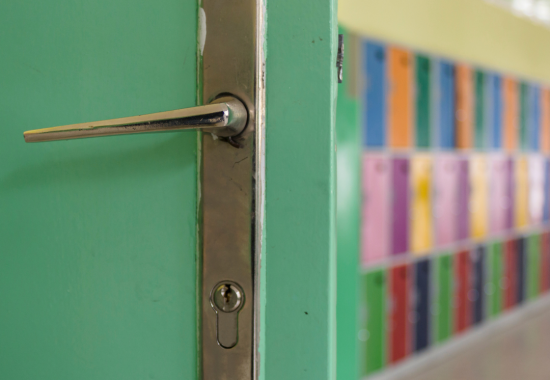Welcome to our first Pittsburgh Marathon runner profile featuring Nina Barbero, or “Miss B” as her health and physical education students know her. Nina agreed to an interview all the way from snowy Rochester, NY where she trains regularly and is a member of Rochester Area Triathletes (RATS), her hometown’s triathlon club.
Get to know Nina through her interview here:
Hey, thank you for deciding to run for Autism Connection of PA! Tell us about your experience supporting people with disabilities in your community.
I have been supporting people with disabilities for as long as I can remember now. In high school I helped my mom with a family friend Meg, who suffered a traumatic brain injury and is dependent on others for care which we provided on a regular schedule. Once my mom got me into racing I was able to run a 5k with Meg where we pushed her in a stroller.
Once entering the multi-sport community, I met the Peck family and Onni. Onni has a progressive muscular disease but her family doesn’t let that hold her back. She races triathlons with her dad who swims with her in a boat then attaches a stroller to his bike to ride with her in tow and then pushes her on the run in the stroller. I am always there cheering her on at all the races where we are both competing.
Most recently, I was able to get one of my former elementary students who uses a wheelchair, to participate in a splash and dash event by my triathlon club. I knew she could do it and she did! In my current position I support our adapted PE classes where we recently started our own event “Northwood Olympics” for our students in APE classes to compete in track and field events.

Tell us about your own fitness journey. What drives you? What have other people done to support you that has been most beneficial? And what do you do to motivate others in the tri or run community?
My own personal journey is all about having fun and enjoying the races I compete in. I also love the community and friends that I have gained through my experiences in running and triathlons. My biggest support is my mom. We frequently train, travel and compete in almost every race we do together. I could not do these events without her! I hope I’m still moving like her when I am her age. The next biggest support is my tri club. RATS has been a driving force in keeping me involved in the sport, every workout we do and event we host shows what an amazing community of people we have. No matter the pace or experience a person has, everyone is welcome and that is something I love about being around the club members!
As for how I motivate others in the community, I just continue to work and push myself to compete in events. When I am racing I’m cheering people on as they pass me or I pass them. If I’m not racing I am volunteering at events or just showing up with my camera to get action shots of those I know and sharing the photos on our Facebook group.
What was your first full marathon experience, which was here in Pittsburgh, like for you? I heard you cried throughout the race, but not for the reasons people might expect. Can you tell us about that?
It was an incredible experience! It’s a hilly course that is similar to my hometown so I was ready for that! I did find myself in tears for the last few miles of the race. It was a big deal for me to be able to complete the race. I wasn’t even sure I would be able to as I was going. Every time someone would cheer me on or give me a compliment I would just burst out into tears, not because my feet hurt (they did), but because of how overwhelmed I was by the support and kindness of others!

I know you are related to someone at the Autism Connection of PA – did anyone in your family twist your arm to run on May 4, 2024? What else are you excited for about that day – what are your after-race plans?
No one ever has to twist my arm to sign up for an event like this! I was telling my aunt and cousin that I was planning to come to Pittsburgh May 4th for the Pirates game. I am a big fan of the Pirates (Let’s go Buccs!) and a big Star Wars fan too! So when I saw it was Star Wars night I had to plan a trip for the give away! When I mentioned this my cousin told me it was marathon weekend so I figured why not sign up! So I will be doing the 5k Saturday and the half marathon Sunday! Calling it a training weekend for my second half Ironman I will be doing in July. After the race I’ll hop back in the car and head home so I can be ready to teach my littles bright and early Monday morning!
Nina Barbero, or “Miss B,” has shared an inspiring journey of dedication and support for people with disabilities, emphasizing the power of inclusivity in the running and triathlon community. As she gears up for the Pittsburgh Marathon on May 4, 2024, running for Autism Connection of PA, we invite you to join her cause.
You can support Nina by clicking her Marathon Race Roster page.
Or, if you feel the call to action, why not lace up your running shoes and participate in the Pittsburgh marathon for a cause close to your heart? Nina’s story exemplifies the transformative effect of running for a purpose, and your involvement can make a difference.
Whether through donations or by taking on the challenge of a marathon, let’s rally together and make strides towards a more inclusive and supportive community. Thank you for considering and being part of this incredible journey.


